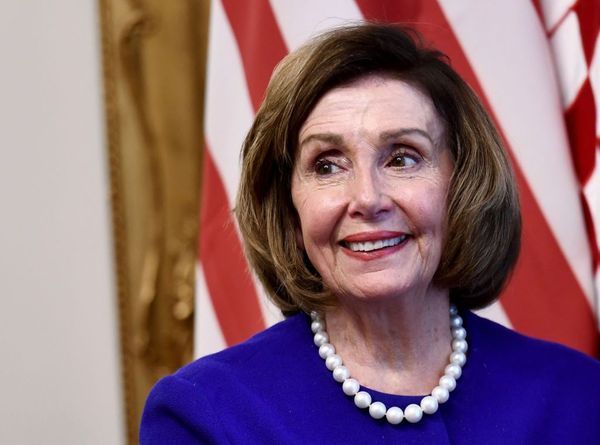
However you dress it up, the decision by Channel 4 to drop Big Brother after next year is neither particularly brave nor prescient. Just inevitable. It may also help Channel 4's survival as a publicly owned broadcaster.
Kevin Lygo, director of television and content, and Julian Bellamy, head of Channel 4, have made public their decision now as a result of a tangle of factors.
These include the evident desertion of many of Big Brother's natural audience – the fact that during 2009 it has become Invisible Big Brother, and not capable of revival.
Then there is the precarious commercial reality for an advertising-funded channel. Channel 4's efficient sales department is no longer able to spin the granddaddy of reality shows' dying audience appeal into the glorious profit margins of yore: these pertained until 2007, but the cost of the programme contract shot up just as its appeal was fading.
One early signal, conscious or not, that Channel 4 thought Big Brother was toast came in the spring, when the broadcaster virtually ignored the illness and death of Jade Goody, Big Brother's most famous creation.
But look at the upside. Evicting Big Brother from the schedule is undeniably a massive and useful signal to the current government, to a Conservative government in waiting, and to the media regulator Ofcom, that Channel 4 is intent on rediscovering its purpose – which is to experiment, to test new formats, and to innovate in a digital multiplatform way. The broadcaster laid out its ambition in Next on Four in 2008, but implemented little.
The Digital Britain white paper of June officially took up the Next on 4 theme and looked to recast Channel 4 in a modernised role, as "a multimedia public service broadcaster, an open new-media authority providing seed corn for creative innovation", a counterpart to the BBC.
During these quiet days of summer, a team of government lawyers and officials are busying themselves redrafting Channel 4's legal remit in preparation for the Digital Economy bill promised this autumn.
Though Channel 4 has failed to win significant favours from wasted years of begging for financial subsidy, it has so far held off either a partial sale to Channel Five, or privatisation.
But the little-discussed reality is that the Labour government's pledge not to privatise Channel 4, given in 1997, is about to come to an end, with a Tory administration looking likely after next year's general election. And the temptation to repair the public finances by any useful sale of assets is obvious. The choice of a new chairman is a crucial part of the equation.
Channel 4 needs someone who can negotiate a new political landscape, but champion it too, as Lord Attenborough and Sir Michael Bishop did under the Thatcher and Major governments.
So yesterday's new message, that Channel 4 is redirecting some £50m a year away from Big Brother – its single biggest commitment by a country mile – to perhaps 20 fresh programme strands, can only help its cause, and renew the support it receives from independent producers.
However, the hard question now is whether a big commissioning push will produce enough new successful shows. This is a creative challenge, a bigger challenge than anyone probably wants to admit.
One key thing to recollect is that the giddy success of the early Big Brother emboldened Channel 4 to end its signature soap, Brookside, in 2003- though admittedly it was ailing.
Since then the broadcaster has lacked what most big channels have as an anchor, or siren call to switch on. Hollyoaks doesn't quite fit the bill. So, while £20m of the £50m is going to a range of new drama series and single plays, a lot will be swallowed up in that quest. Channel 4 is looking for a fresh comic soap. That's not easy to pull off, or cheap.
Nor is finding breakthrough fresh comedy and entertainment, though it has enjoyed real success with E4's Skins and The Inbetweeners.
Last summer, remember, Channel 4 tried an expensive experiment with The Nightly Show, stripped at 11pm, which aimed at finding talent, but seems to have turned up no new stars.
More pertinently, though, in 2007, Lygo announced at the MediaGuardian Edinburgh International Television Festival that Channel 4 was abandoning a fixation with a 10% audience share for its main network. Channel 4 went on to drop a large quantity of tired factual entertainment programming - It's Me or the Dog, You Are What You Eat, Brat Camp and Selling Houses Abroad etc - while adding Heston Blumenthal to its roster of TV chefs, and promoting daytime's Come Dine with Me to primetime.
That has all paid off. Channel 4 has won record numbers of awards and recognition for its 2008 slate of programmes, with the outstanding drama The Devil's Whore one obvious winner and, of course, the Oscar-winning film Slumdog Millionaire.
Cancelling Celebrity Big Brother in 2008 also forced it to innovate – with the arrival of the campaigning Big Food Fights.
So Channel 4's programming commissioning team, freed of the yoke of more than 100 scheduled days annually of Big Brother and its celebrity spin-off, hold the broadcaster's future in their hands.







